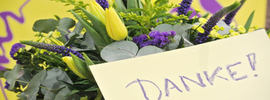Christian Weisner
Not against Rome
Guest Comment in: HERDER KORRESPONDENZ 1/2022
The German Synodal Way will only be successful if it networks internationally
BY CHRISTIAN WEISNER
The German Chancellor has met Pope Francis in Rome five times in the past eight years. The two seem to get along very well, even across denominational boundaries. But the German mentality and also the theology in Germany remain foreign to Jorge Bergoglio in many ways, despite his research stay in Germany in 1986. And so, even with this reform pope, Rome's failure to understand the Church north of the Alps, which has existed for centuries, continues and not in a good way.
The Synodal Way in Germany is oriented by the risk factors of the MHG study identified in 2018, which had also been formulated by the Church People's Initiative "We are Church" in Austria in 1995. It was foreseeable that the Synodal Way would be a rocky road. The theological and psychological burdens of the past are too great and have to be cleared away. It is absolutely clear that the Synodal Way in Germany will not be able to change the universal Church on its own. But the ecumenically mature theology in Germany offers an invaluable potential to conduct a theological debate at the cutting edge of the times and to work out fundamental approaches to solutions. International observers of the 2nd Synodal Assembly in Frankfurt in autumn 2021 attest that the German Synodal Way has model characteristics for the church as a whole. Within the international We are Church network, we are also experiencing how great the interest and expectations are all over the world. So it is not a German special way, but it could become a service to the universal Church. For the scandals that made this Synodal Way necessary are also becoming apparent in more and more local churches, indeed in the entire world church. From the point of view of canon law, the synodal way may be a nullity, but for this very reason it can develop new solutions for old blockages in a more unbiased way.
Pope Francis wants a synodal Church at all levels. With the preparatory process involving all local churches for the World Synod of Bishops in 2023, Francis has now launched a highly ambitious participation project. Does Rome now also see the chances of a path that is not laid down in canon law? Or is it an attempt to slow down and limit the synodal way in Germany? Much from Rome is still unclear and needs improvement. Many diocesan leaders still find it difficult to offer the concrete possibilities for participation envisaged by Rome. How do we move forward now so that both synodal processes do not end in insoluble conflicts or come to nothing?
As important as the basic issue of evangelisation set out by Pope Francis is: Until a real coming to terms with sexualised and spiritual violence is tackled, all efforts of evangelisation, no matter how well-intentioned, will come to nothing.
We therefore need an intensification of relations between the Vatican and the Catholic Church in Germany, and this with great transparency, in order to reduce the influence of the old rope networks that still exist. The interest expressed by Cardinal Mario Grech in the German Way must lead to not only the bishops being welcomed in Rome, but the whole Presidium of the Synodal Way.
All essential documents of the Synodal Way in Germany must be made available promptly also in foreign languages in order to counterbalance the targeted disruptive manoeuvres from Germany and abroad. The German bishops and auxiliary bishops, who announced a turning point in Lingen more than two years ago, must now finally position themselves, because their two-thirds majority for reforms will ultimately be decisive. The more united they are - ideally together with the bishops' conferences of other countries - in Rome for the urgently needed reforms, the less the Vatican will be able to ignore this.
For Germany, constructive proposals are needed on how the results of the Synodal Way can be integrated into the broader global process. For two final results that are not compatible would destroy the credibility of both processes. For the Synod of Bishops convened for 2023, a comprehensive participation of men and women with equal rights is needed if the principle of the Synod is not to become a farce. So let us rather speak of a world synod. Let us also see the extension of the processes caused by Corona as an opportunity to use the time for learning and rethinking. However, we do not need delay management, but must act now, where possible, because the credibility and ultimately the existence of the Catholic World Church is at stake.
Christian Weisner, born in 1951, is co-initiator of the church referendum "We are Church" in Germany in 1995 and co-founder of "We are Church International" in Rome in 1996. Since then, "We are Church" has accompanied all Synods of Bishops and the conclaves in Rome in 2005 and 2013.
Translated by Colm Holmes, Dublin, We are Church International
Original: “Nicht gegen Rom”
Der Synodale Weg wird nur erfolgreich sein, wenn er sich international vernetzt.
www.herder.de/hk/hefte/archiv/2022/1-2022/nicht-gegen-rom/
Zuletzt geändert am 17.05.2022


